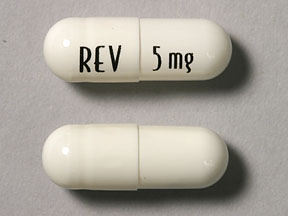Leave a Comment:
13 comments
[…] Myeloma – Low-dose Maintenance Therapy […]
Reply[…] Myeloma – Low-dose Maintenance Therapy […]
Reply[…] Myeloma Survival- Low-dose Maintenance Therapy […]
Reply[…] Myeloma Survival- Low-dose Maintenance Therapy […]
ReplyI am a MM patient. Taking Darcalex every two months. I used to do it every month and I thought it was too much. Can you recommend how I can be MM free in the long term. I am 59 I did the Revelimid Cel aid and dextramethazone treatment and the did the ASCell treatment but the MM came back
Reply[…] Myeloma Survival- Low-dose Maintenance Therapy […]
Reply[…] Low-dose Maintenance Therapy Increases Multiple Myeloma Overall Survival […]
Reply[…] Low-dose Maintenance Therapy Increases Multiple Myeloma Overall Survival […]
ReplyHi David-
I was diagnosed with stage1 MM in Sept 2016. Since then, I have gone thru autogolous SCT (Jan 2017), melphalan treatment prior to SCT, two cycles of RVD post SCT, and am currently on Revlimid maintance. I didn’t find Your site until recently and I have been intrigued. My most recent M spike results went from unquantifiable to sub 0.5. While that is still very low, I would like to do my part in some form of integrative therapies. Not knowing where to go or who to trust with this, I landed here and am writing you now.
The CBD oil, curcumin and Omega-3 therapies seem to make the most sense. However, any suggestions you may have would be greatly appreciated.
Hi Chris-
I will send a guide about integrative MM therapies to you via your email address. This info will give you an understanding of “doing your part” in enhancing the anti-MM action of revlimid.
You are correct. Your m-spike is still quite low which is excellent but the goal is to keep it there (low) for years if no decades. CBD oil is also mentioned as an integrative therapy but the efficacy of CBD oil depends on the state in which you live.
Read over the integrative therapies guide and let me know if you have any questions.
Hang in there,
David Emerson
ReplyFound out I had MM in May, my doctor said I would have had 2 weeks to live if it was nit detected! My kidneys were clogged, and fell at the hospital and broke my arm( which was a blessing in disguise) spent 9 days and got cancer treatments and fluids immediately! Today my doctor said I’m doing so well my blood work doesn’t even look like I have cancer! They are so amazed at how the chemo, Revlimid and regular MM treatment is working on me! I’m really blessed!! My question is can the cannibis oil help with the cure??Will it interfere with my treatment?
ReplyHi JoAnn-
I am sorry to read of your MM diagnosis though happy to read that you are now in remission. You are correct on two counts. Yes, conventional MM chemotherapy drugs such as revlimid will eventually stop working (MM eventually becomes resistant…). And yes, CBD oil has been shown to enhance the efficacy of revlimid (aka bortezomib). I cannot tell you that CBD cures MMers but it will synergize with chemo.
I encourage you to add evidence-based but non-toxic therapies such as CBD oil, anti-MM nutrition, supplementation, bone health and other therapies to your regimen.
Let me know if you have any questions.
Hang in there,
David Emerson
Reply



